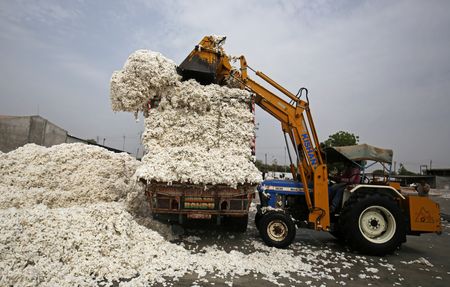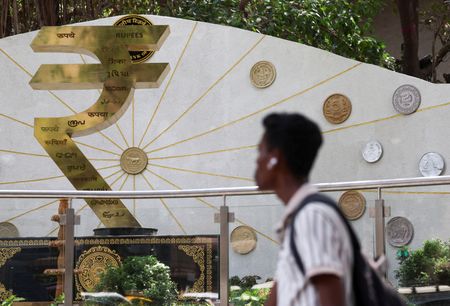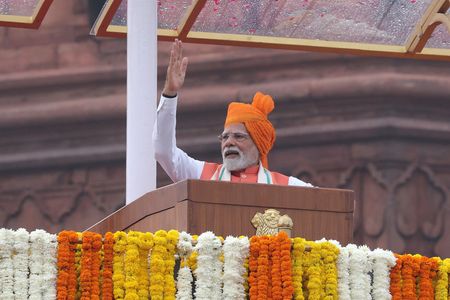By Rajendra Jadhav and Mayank Bhardwaj
MUMBAI/NEW DELHI (Reuters) – India will launch a six-year programme to boost the output of pulse crops by taking measures including directing state agencies to buy the staple at guaranteed prices, the finance minister said on Saturday, in a bid to cut reliance on imports.
Rising demand has forced India, the world’s biggest producer and consumer of pulses, to spend a record $5 billion on importing pulses such as pigeon peas, black matpe, and red lentils in 2024, making the country the world’s top importer.
India currently imports large amounts of pulses from Canada, Myanmar, Russia, and a host of African countries.
Over the next four years, state agencies will procure pigeon peas, black matpe, and red lentils from farmers at government-set guaranteed, or support, prices, Nirmala Sitharaman said while presenting the annual budget for fiscal year 2025-2026.
Sitharaman said her government would also aim to boost cotton production, particularly of the extra-long staple variety, by supporting research and development.
India is the world’s second-biggest cotton producer, but yields have fallen in recent years, turning the country into a net importer of the fibre, after previously being a net exporter.
Announcing measures to assist millions of farmers grappling with low incomes, Sitharaman unveiled plans to set up a urea plant with an annual capacity of 1.2 million metric tons to boost supplies of one of the key crop nutrients.
Agriculture is a mainstay in India. The sector employs nearly 45% of the workforce and contributes about 15% to the $3.5 trillion economy.
Prime Minister Narendra Modi’s government will increase the subsidized farm loan limit to 500,000 rupees ($5,777.94) from the existing 300,000 rupees, Sitharaman said.
She said the government will also launch a “national mission” to develop high-yielding seed varieties.
Farm policy experts say India, the world’s most populous country, needs to develop high-yielding seeds to overcome the problem of shrinking farmlands, caused by rapid urbanisation and industrialisation, and erratic weather patterns.
($1 = 86.53 rupees)
(Reporting by Rajendra Jadhav and Mayank Bhardwaj; Editing by Sonia Cheema)










